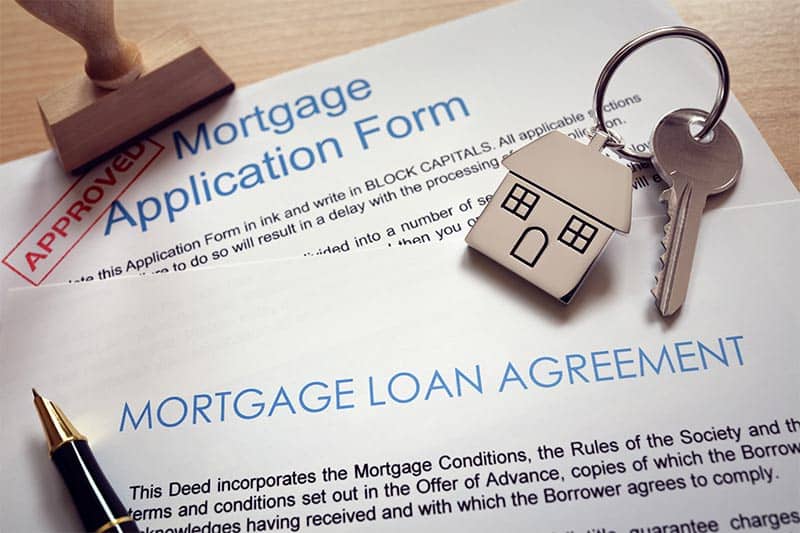
How to Get an Investment Property Mortgage in Canada
An investment property can be a great way to bring in extra income each month while also enjoying capital gains on the value of the land and the property itself. Having a tenant living or working from your property means that you’ll earn income each month, which will more than cover the investment property mortgage rates you’re paying. You can leverage this property to invest in other properties, and once the mortgage is paid off, the income you earn from your investment property will rise drastically.
A mortgage for investment property makes this type of investment more accessible to people who don’t have the cash to shell out to buy a property outright.
What Is An Investment Property?

Having an investment property is when you purchase real estate with the goal of earning a return on your investment. You can do this by earning monthly income via renting out your property as a residential or commercial space, or you can earn a return on your investment by selling it for a higher price than you paid for it at some point in the future.
These are properties that the owner does not live in (with the exception of a duplex, an apartment building, and so on). However, a single-family home with the owner living in it is generally not an income property, even though it could be sold for a profit down the road. There are certain arrangements that can become a bit confusing, so always check with a professional.
The types of income that can be generated from an investment property include rents that are paid, interest, or dividends. Keep in mind that different types of income are taxed differently, and the tax implications are always something to consider when calculating the profitability of the various options that you’ll encounter.
How To Afford an Investment Property
Even if you have the cash to buy an investment property outright, it can be more diligent to seek out a mortgage for investment property instead. This will allow you to keep more of your cash and to make the down payments on multiple investment properties if you decide to expand, especially when you’re getting monthly cash flow from these properties to use towards the mortgages.
There are different types of mortgages for investment properties depending on the specific use of the property and what your strategy is. We’re happy to help you understand more of the nuances and intricacies of a mortgage for an investment property if you reach out to us to book a free consultation.
The more property you acquire, the greater your cash flow will become, opening the doors to expanding your empire and owning more and more properties if that’s your goal. If you just want to own a second or third home, perhaps a small apartment building or a bit of office space, you can still do well for yourself, even if your goal isn’t to keep growing and acquiring new properties on a regular basis.
Is There an Investment Property Mortgage Tax Deduction?
Certain things can be deducted from the costs of owning and maintaining an investment property, and other things cannot. It’s diligent to speak to a tax professional to ensure that you understand the ins and outs of your unique situation. Still, generally speaking, there are numerous expenses that you’ll be able to deduct and a handful you won’t.
When you have an income rental property, you cannot deduct:
Here is what cannot be deducted, according to the Government of Canada (source).
- Land transfer taxes: The amount that you pay in land transfer taxes cannot be deducted as a tax deduction.
- Mortgage principal: The principal of your mortgage cannot be deducted as an expense, but plenty of other expenses can, including bank charges and interest.
- Penalties: If you end up having to pay penalties, you cannot deduct these, so do your best to avoid them whenever possible.
- Value of your own labour: If you decide to do some of the work yourself, you can’t deduct it as an expense since you aren’t really paying for it with money. You’re paying it in time in order to save yourself money compared to hiring somebody else to do the work.
- Personal portion of expenses: If you’re renting out a room in a home that you occupy, you can’t write off any portion of the expenses and costs that were used by you personally. This will require some accounting work to determine how much of the expenses were used for the business portion and what was used by you, personally.
Aside from what cannot be dedicated, there are a lot of expenses that you can deduct on your investment property. We won’t go into details for each of these, but here’s a partial list of the most common tax deductions for investment properties:
Advertising costs to find tenants, insurance costs, interest and bank charges, office expenses and professional fees, management fees, administration fees, the costs of repairs and maintenance on the property, the costs of property taxes, utilities that you pay as the landlord, and a handful of other expenses.
Again, you should consult with a tax professional when it’s time to calculate and categorize all of your expenses on your investment property unless you’re fully comfortable doing it yourself.
How to Get Mortgage for Investment Property

If you’re considering dipping your toes into the waters of investment property, you’ll most likely need a mortgage. Whether you’re looking to create a monthly income by renting out your property, or you’re thinking bigger picture and planning to rely on the value increasing over time, or possibly purchasing a home for your kids to live in while they go to school, instead of paying rent to someone else, an investment property can be a useful piece of anyone’s overall portfolio of assets.
If the property you’re looking at already has tenants and rent coming in, this can be beneficial since you’ll have an income stream right away. If the property isn’t ready to rent or is currently sitting empty, this is considered higher risk since it could take an unforeseen amount of time until money starts coming in and you’re still on the hook for the monthly expenses.
Some properties don’t qualify for high ratio default insurance, which means that you’ll need a down payment of 20% or more. If you cannot meet that threshold, you may have to consider a more affordable property to start with or save up a larger down payment.
There are a number of ways to invest in the Canadian real estate market. To find out if you qualify for an investment property mortgage or discuss other options, contact us today! We’ll help you navigate the waters of investment property mortgages to help you get settled into this exciting new stage of wealth-building in your life.
Types of Investment Properties in Canada
Here’s a little more information about some of the more common types of investment properties that you’ll discover in Canada. Of course, you can also invest in properties all around the world, but this can complicate things in a number of ways. Plus, there are plenty of great opportunities right here at home.
Commercial Real Estate
Purchasing a small or large office building or other types of commercial buildings can offer a semblance of stability if you have a tenant that is successful and signs a multi-year lease. Still, in certain industries, the turnover can be a lot faster, for instance, with restaurants.
Single-family homes
This is a home built on a plot of land that doesn’t have any shared walls with other properties. A single-family home is distinguished from a townhouse or a duplex because the single-family home doesn’t have any shared walls.
Condominiums
A condo is a single unit inside a larger building, where the individual units have different owners.
Townhouses
A townhouse is essentially the combination of a condo and a single-family home. A townhouse is connected to other townhouses with shared walls but carries with it a lot of the benefits of a single-family home, including private entrances and a yard.
Multi-Unit Residential Properties
These are structures that are rented out to multiple tenants in multiple units that have one single entity as an owner, as opposed to condos that have their own owners (generally, the owner of the condo lives there or rents it out.)
Final Thoughts on Getting an Investment Property Mortgage in Canada
Another way to access lending for an investment property is through a home equity line of credit on the home you’re living in. If you use a readvanceable mortgage like Manulife One, you can gain tax benefits by using your HELOC to invest in property. We can consult with you to help you determine the best path forward towards your financial goals.

